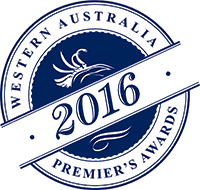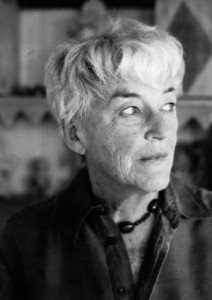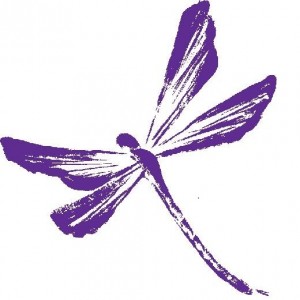Reviews for History, Memoir, Biography (HMB) were light on during September, so I thought I’d take this opportunity to explore what else has been going on in the wider world of women writer’s writing HMB.
 A couple of weeks ago, the West Australian Premier’s Book Awards announced their winners.
A couple of weeks ago, the West Australian Premier’s Book Awards announced their winners.
Congratulations go to Joan London for winning Best Book: Fiction with The Golden Age, Helen Garner for Best Book: Non-Fiction with This House of Grief (also taking out the overall Premier’s Prize), Glenda Millard Best Children’s Book with The Duck and the Darklings, Lucy Dougan for Best Poetry with The Guardians, Claire Zorn for Best YA with The Protected, Ruth A Morgan for Best WA History with Running Out? Water in WA, Suzie Miller for Best Script with Dust and Brooke Davis for Best Emerging Writer with Lost and Found.
(The above links will take you to all the reviews in our database for that particular book by our many contributors.)
Sadly, September was also the month we lost one of the greats in Australian history writing.
Inga Clendinnen (17 August 1934 – 8 September 2016) wrote erudite and comprehensive histories that focused on social and cultural encounters. Many of our members wrote touching posts about the personal impact her writing had on them. I’ll let you visit these posts at your leisure.
Michelle @Adventures in Biography –  Sue @Whispering Gums – Lisa @ANZLitLovers.
Sue @Whispering Gums – Lisa @ANZLitLovers.
Janine @The Resident Judge of Port Phillip also reread & reviewed Tiger’s Eye.
- — (1987). Ambivalent Conquests: Maya and Spaniard in Yucatán, 1517–1570.
- — (1991). Aztecs: An Interpretation.
- — (1998). Reading the Holocaust.
- — (1999). True Stories.
- — (2008). True Stories: History, Politics, Aboriginality
- — (2000). Tiger’s Eye – A Memoir.
- — (2003). Dancing with Strangers: Europeans and Australians at First Contact.
- — (2006). Agamemnon’s Kiss: Selected Essays.
- — (2006). The History Question: Who Owns the Past. Quarterly Essay. 23.
- — (2010). The Cost of Courage in Aztec Society: Essays on Mesoamerican Society and Culture.
One of the big stories in the world of books this week is the so-called unmasking of Elena Ferrante by a male journalist in the US. Given our support and encouragement of all women writer’s I felt it was reasonable to explore this issue a little.
Jeanette Winterson wrote a scathing response in The Guardian on the weekend. She claimed that when men insert themselves into the stories they write (think Paul Auster, Karl Ove Knausgaard, Henry Miller) it is ‘called meta-fiction and part of their playful experiment.’ But when women do it they call it autobiography and get dumped on for lying about their mothers!
A Northern Hemisphere sister blog, A Room of Our Own also featured a post about the Ferrante outing that I include here for its topical relevance but also to highlight another blog with similar aims to ours.
What was the journalists motivation for ‘outing’ her? Does Ferrante’s success really deny her the right to privacy and to choose how she interacts with the world at large? Does ‘being outed’ compromise her safety?
Why do men write autobiographies and women write memoirs (think Bruce Springsteen’s latest book, Born to Run, very definitely marketed as an autobiography while Patti Smith’s recent book, M Train, was very clearly marketed as a memoir. Closer to home, Tim Winton’s, The Boy Behind the Curtain is marketed by Penguin as ‘remarkable true stories’ while Drusilla Modjeska’s, Second Half First is a ‘stunning memoir’)? Do these labels matter?
As I said above we only had a few reviews this month – Jonathan Shaw gave us Ada Louise: A Life Imagined by Lee Whitmore, Louise reviewed Rosie Batty’s memoir, A Mother’s Story, Kim took us back to King Cross in the 1930’s with Robin Dalton’s Aunts Up the Cross, Jennifer explored the darker side of human nature with The Poison Principle by Gail Bell, Suzanne summed up the ‘total heart experience’ of reading Robbi Neal’s After Before Time and Christine delved into the lives of Deadly Australian Women by Kay Saunders.
Happy Reading!
About Bronwyn: I have been a book blogger at Brona’s Books since 2009 and a bookseller (specialising in children’s literature) in Sydney since 2008. Prior to this I was as an Early Childhood teacher for 18 years in rural NSW.
 I taught myself to read when I was four by memorising my Dr Seuss books. I haven’t stopped reading since.
I taught myself to read when I was four by memorising my Dr Seuss books. I haven’t stopped reading since.
You can find me on Twitter @bronasbooks and Litsy @Brona.





